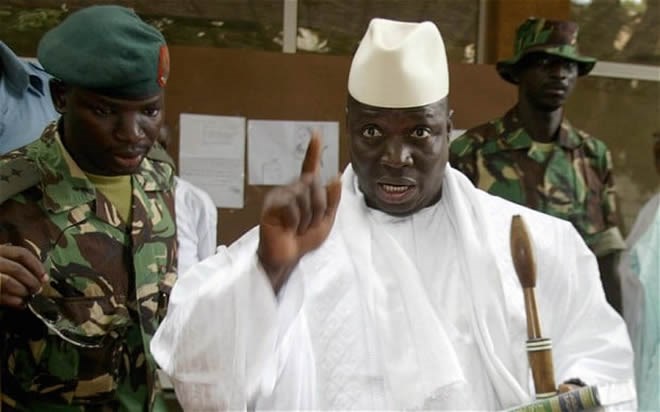African Union criticizes Gambian President over rejected Election Results

The African Union is calling on Gambian President Yahya Jammeh to accept the results of the presidential election earlier this month as he said he would.
AU Commission Chairperson Nkosozana Dlamini-Zuma said, “The chairperson of the commission strongly urges President Yahya Jammeh to facilitate a peaceful and orderly transition and transfer of power to the new president of The Gambia.”
Jammeh had conceded defeat after the December 1 poll, but issued a statement Friday saying “unacceptable errors” were found by election officials and he is no longer conceding to opposition candidate Adama Barrow.
Dlamini-Zuma said said Jammeh’s rejection of the results is “null and void” as he has already conceded. She said Barrow’s triumph “is the true expression of the will of the people.”
Jammeh has ruled Gambia for more than 22 years.
After the election results were announced, state media broadcast a phone call in which President Jammeh told Barrow that he wanted to hand over power graciously and vowed not to contest the results.
Jammeh congratulated Barrow for his “clear victory” and praised the elections as “transparent” and “rig-proof.” He also said, “Allah is telling me my time is up,” and added he would move to his farm after leaving office in January.
Barrow, 51, represented a coalition of seven opposition parties that challenged Jammeh.
Jammeh, also 51, has ruled the tiny West African nation since taking power in a military coup in 1994. He won four subsequent elections that critics said were neither free nor fair and supported a 2002 constitutional amendment that removed presidential term limits. He once said he could rule Gambia for “a billion years.”
Rights groups have often accused Jammeh of having political opponents and journalists either arrested or killed.
Amnesty International said in a statement after the election that the new administration would have an obligation to “transform the human rights situation in Gambia, freeing political prisoners, removing repressive laws and entrenching newly found freedoms.”
Gambia is a former British colony that occupies a narrow sliver of land surrounded by French-speaking Senegal. About 880,000 Gambians were eligible to vote in the poll, which took place under a complete communications blackout, including social media platforms.
VOA